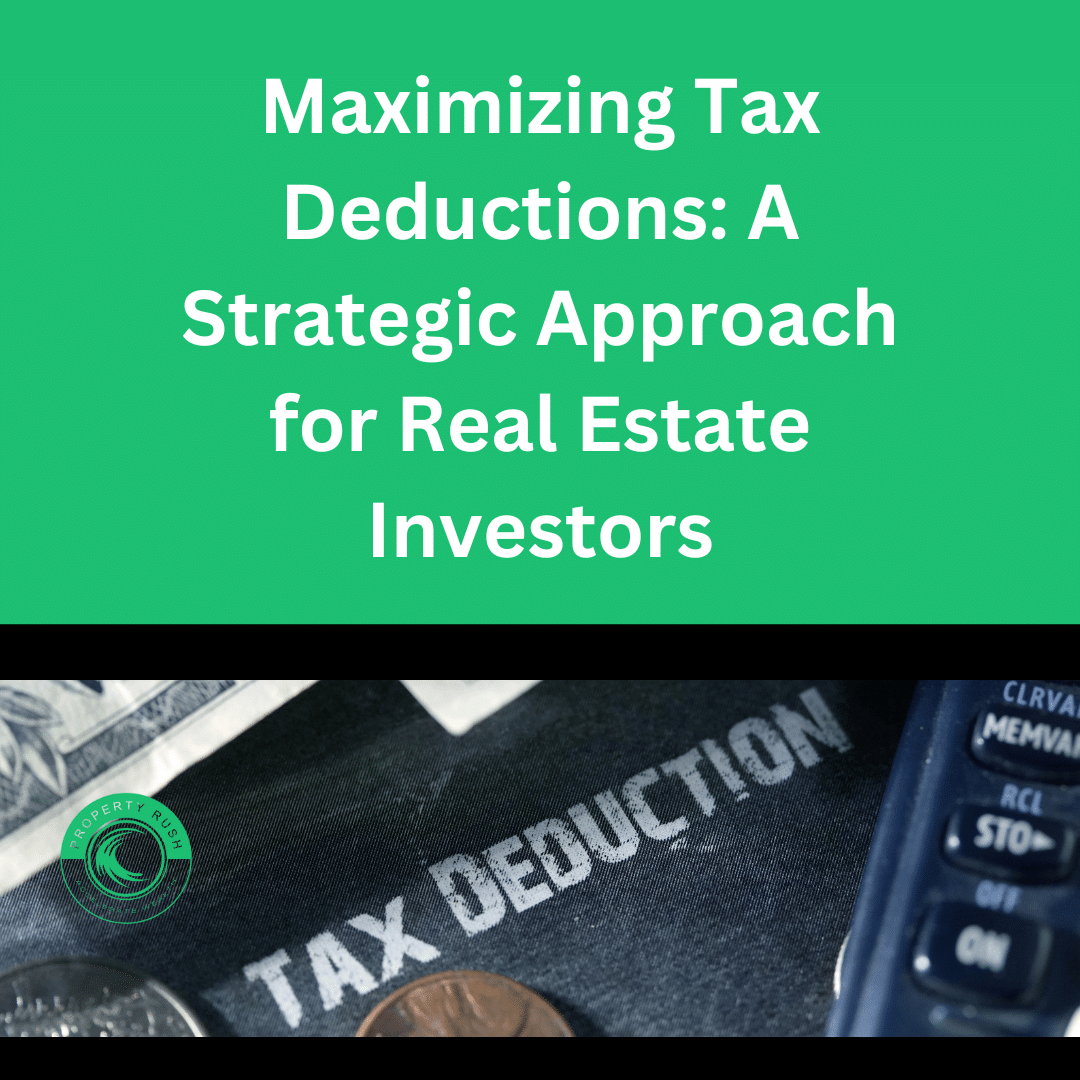Real estate investment is not only a lucrative venture, but it also offers unique opportunities for savvy investors to reduce their tax burden. As a real estate investor, you can leverage a multitude of tax deductions to significantly lower your annual tax payments, potentially saving you thousands of dollars. With careful planning and the right structure, you can unlock these benefits and take your real estate investment game to the next level.
Dive into the World of Tax Deductions
Tax deductions are like hidden gems in the realm of real estate investing. They allow you to subtract certain expenses from your taxable income, effectively reducing the amount of income that is subject to taxation. While tax laws and regulations can be complex, they also provide numerous opportunities for you to legitimately lower your tax liability. The key is to understand what expenses are deductible and how to leverage them to your advantage.

A Wealth of Deductible Expenses
The array of potentially deductible expenses available to real estate investors is impressive. From seemingly minor costs to substantial ones, here’s a glimpse of the expenses you could potentially deduct:
- Mortgage Interest: Deduct the interest paid on the mortgage of your rental properties.
- Property Taxes: Deduct the property taxes you pay on your real estate investments.
- Depreciation: Depreciate the cost of your investment properties over time, which reduces your taxable income.
- Repairs and Maintenance: Deduct costs for repairs, upkeep, and maintenance of your properties.
- Home Office Expenses: Deduct a portion of your home office expenses if you use a part of your home for business purposes.
- Travel Expenses: Deduct travel expenses related to visiting properties, attending seminars, and meeting with clients.
- Professional Fees: Deduct fees paid to lawyers, accountants, property managers, and other professionals.
- Utilities: Deduct a portion of utilities like electricity, water, and gas if they are used for rental properties.
- Insurance Premiums: Deduct insurance premiums for property, liability, and landlord insurance.
- Advertising and Marketing: Deduct expenses for advertising, marketing, and promoting your rental properties.
- HOA Fees: Deduct homeowners association fees for properties located in community associations.
- Interest on Loans: Deduct interest on loans used for real estate investments, such as renovation loans or business loans.
- Legal and Professional Fees: Deduct fees for legal advice, property management, and other professional services.
- Repainting and Renovations: Deduct costs for repainting, renovating, or improving your investment properties.
- Property Management Fees: Deduct fees paid to property management companies for their services.
- Travel and Transportation: Deduct mileage or transportation costs related to managing your properties.
- Education and Training: Deduct costs for real estate courses, seminars, and educational materials.
- Casualty Losses: Deduct losses due to theft, vandalism, or other casualty events not covered by insurance.
- Home Improvement Supplies: Deduct costs for purchasing tools, equipment, and supplies for property maintenance.
- Miscellaneous Expenses: Deduct other relevant expenses such as office supplies, subscription services, and business-related subscriptions.
The list goes on… Remember, the deductibility of these expenses may vary depending on factors such as the nature of your investment, the legal structure of your business, and the specific tax laws in your country or jurisdiction. Always consult a tax professional to ensure you’re properly claiming these deductions and complying with the applicable tax regulations.
Crafting the Right Structure
To fully capitalize on these deductions and protect your real estate investment endeavors, it’s crucial to establish the right business structure. Choosing the appropriate legal entity can not only shield your personal assets from liability but also facilitate better tax planning. Common structures for real estate investors include Limited Liability Companies (LLCs), partnerships, and S Corporations.
Moreover, the right business structure can also help you build a strong credit profile for your real estate investments. This is invaluable when seeking financing for your projects, as a solid credit history can unlock access to better loan terms and higher loan amounts.
Navigating the Terrain
While the prospect of maximizing tax deductions might seem enticing, it’s imperative to navigate this terrain with utmost care and compliance. The tax landscape is ever-evolving, and laws can change from year to year. It’s wise to consult with a tax professional who specializes in real estate investments. They can help you navigate the complexities of the tax code, ensuring that you’re taking full advantage of the deductions available to you while staying within legal boundaries.
In Conclusion
Real estate investment offers a wealth of opportunities, not only in terms of generating income and building wealth but also in strategically minimizing your tax liability. By understanding the wide range of potentially deductible expenses and setting up the right business structure, you can unlock substantial tax savings. Remember, a knowledgeable tax professional can be your best ally in maximizing deductions while staying compliant with tax regulations. So, as you delve into the world of real estate investment, make sure to explore the tax benefits that await you and seize the chance to pay thousands of dollars less in taxes every year.






